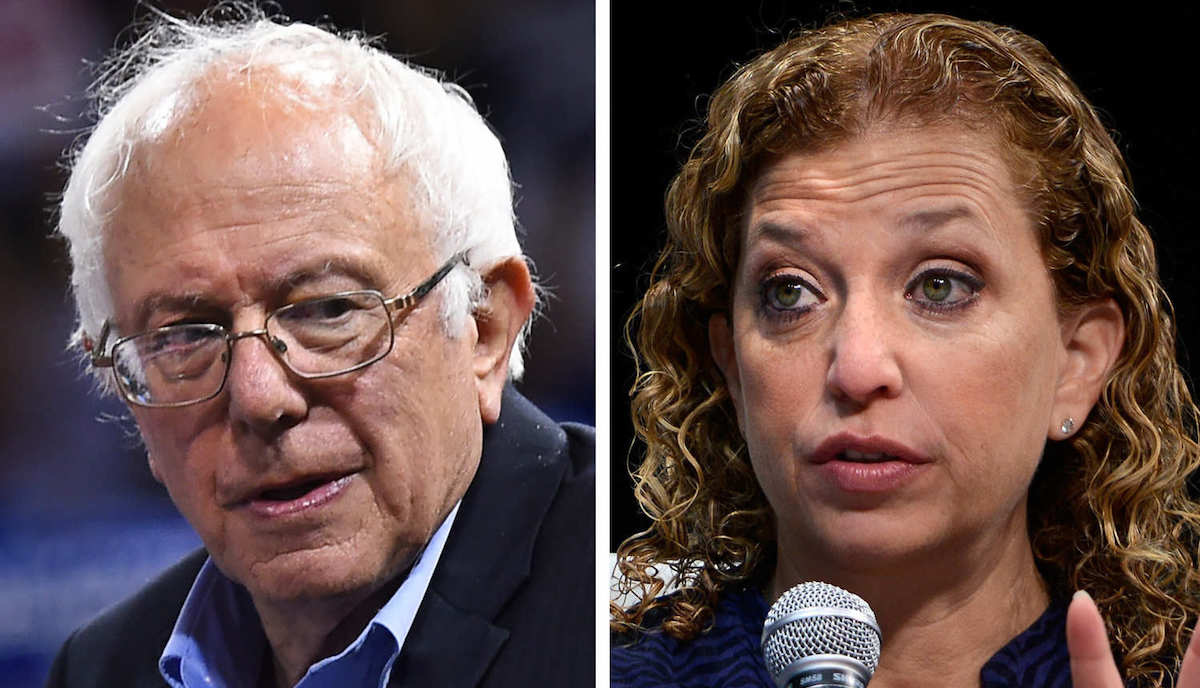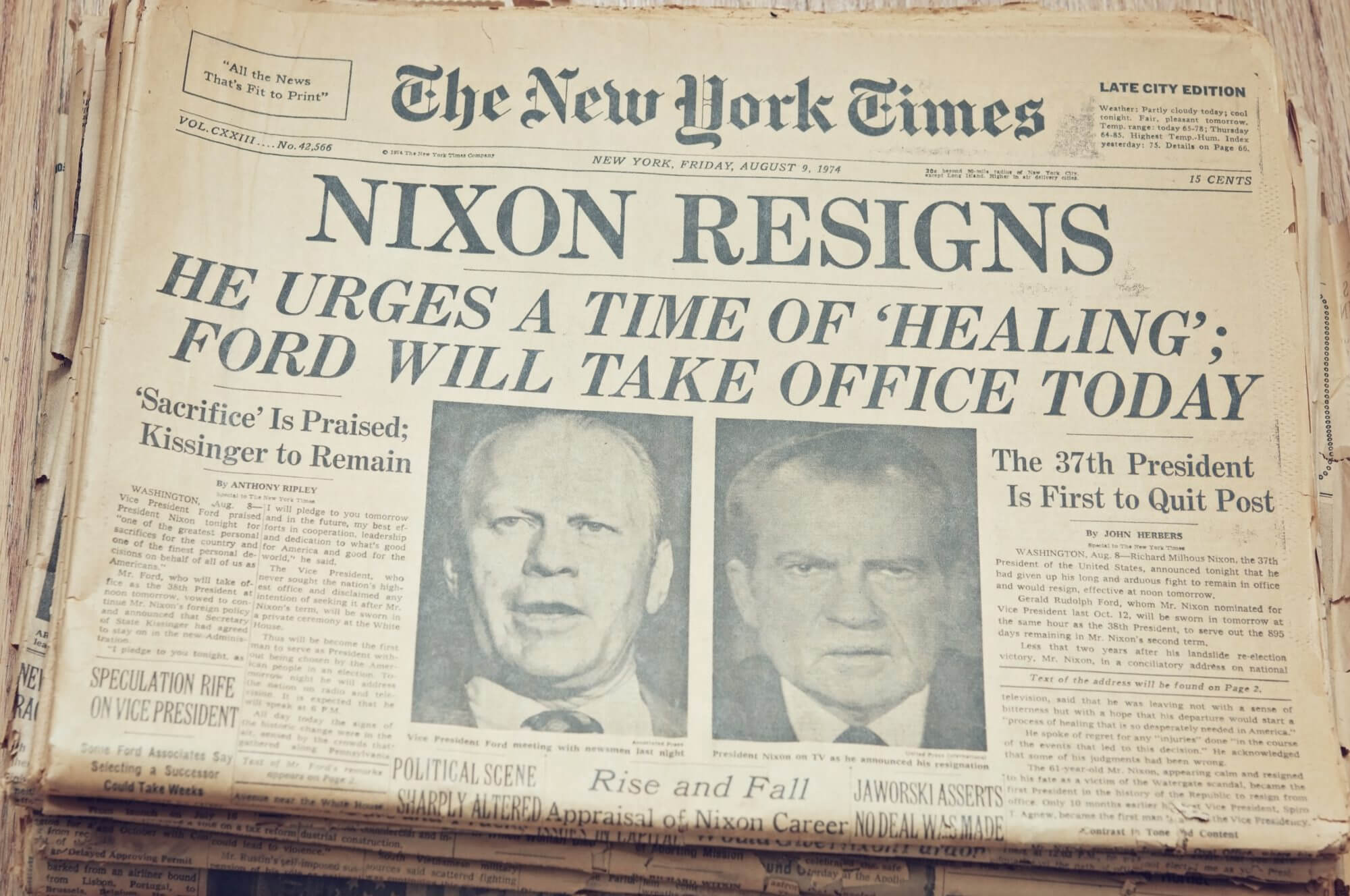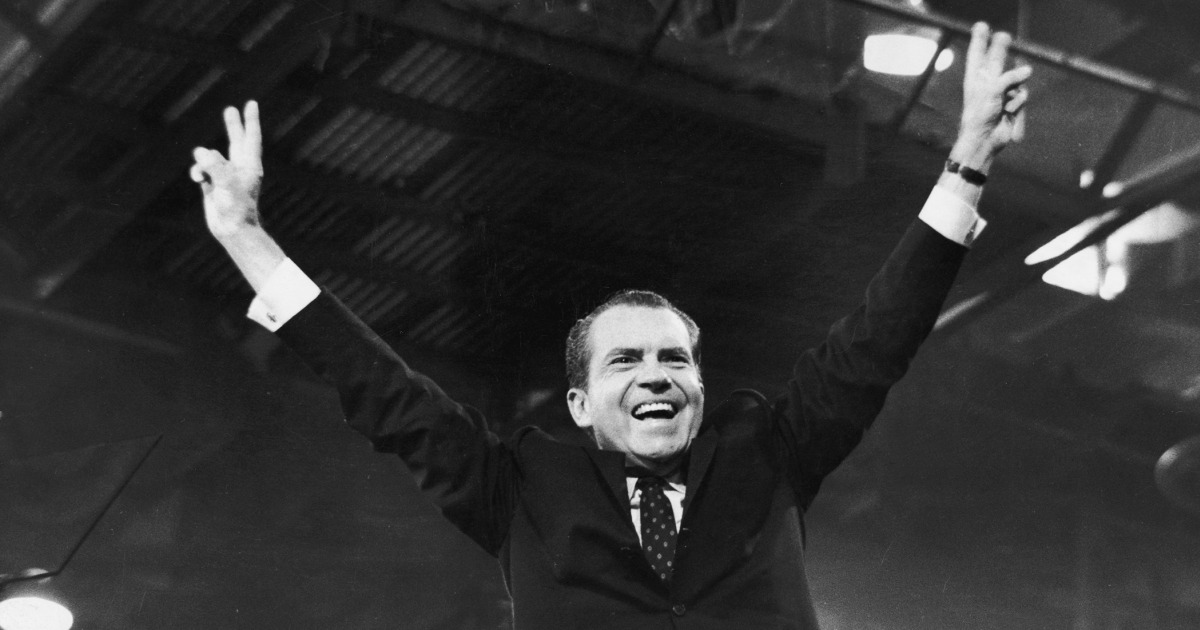Nixon claimed executive privilege
Nixon argued that the concept of executive privilege gave him the power to withhold sensitive information, such as the tapes, from other government branches in order to maintain confidential communications within the executive branch and to secure the national interest.
On July 24, 1974, a unanimous Court (with Justice Rehnquist not taking part due to a prior role in the Nixon administration) ruled against the President. Chief Justice
Warren Burger said that the President didn’t have an absolute, unqualified privilege to withhold information.
Overview “” – Learning About For Students For Teachers Glossary Related Cases Legal Concepts For Students Students This section is for students. Use the links below to download classroom-ready .PDFs of case resources and activities. About the Case Full Case Summaries A thorough summary of case...

landmarkcases.org
msna387256
They voted to start the impeachment process but since he resigned from office, it did not matter anymore so it was dropped.
He then resigned so there was not necessary to proceed any further
Ford then pardon Nixon so Nixon was never impeached but had to be pardon to protect him from facing trial at a later date. Still the pardon was a full and unconditional pardon from any crimes he might have committed.
The Watergate break-in was a crime.
the famous “smoking gun” conversation (
transcript,
audio) -- proved he’d tried to prevent the FBI from investigating the matter
by lying about it. He’d also approved giving hush money to Watergate conspirators. That’s obstruction of justice.
Did he know about the plan? who knows , but it clear he tried to cover up the break-in by lying about it.
He did say that he was not a crook.
On the 40th anniversary of Nixon's resignation, we still don't know whether the president himself ordered the Watergate break-in.

www.msnbc.com



